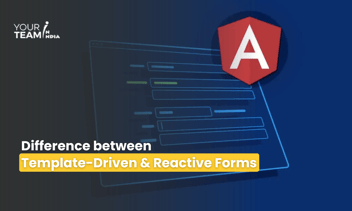Quick Summary: Django formsets provide a convenient way to manage multiple forms on a single page. They allow developers to handle complex form operations with ease, streamlining data collection and processing in Django applications.
Introduction
If you've ever completed an online form, chances are you've encountered instances where you had to input various pieces of information. For developers working behind the scenes, handling these forms on the backend can pose a significant challenge, especially when confronted with multiple forms on a single webpage. Thankfully, Django Formsets come to the rescue, offering a handy solution to this common problem.
Understanding Django Formsets
Django Formsets are a part of the Django framework, designed specifically to handle multiple forms on a single page. They provide a convenient way to work with a collection of forms that share the same structure and functionality. Formsets allow you to manage and validate multiple forms simultaneously, streamlining the process of handling complex data input scenarios.
Technical Aspects
At its core, Django Formsets are built on top of Django's form-handling capabilities. They utilize the same form classes you're accustomed to but extend their functionality to work with multiple instances of these forms. Formsets are typically created using Django's formset_factory function, which generates a FormSet class based on a given form class.
Advantages of Django Formsets
Simplified Management: Django Formsets simplify the management of multiple forms by providing a unified interface for handling them. This abstraction reduces boilerplate code and makes it easier to work with complex form scenarios.
Consistent Validation: With Django Formsets, you can validate all forms in a set simultaneously. This ensures consistency in data validation across multiple forms, reducing the likelihood of inconsistencies or errors in your application.
Dynamic Form Handling: Formsets are flexible and can dynamically adjust to changes in the number of forms. This makes them ideal for scenarios where the number of forms is not fixed, such as adding or removing items from a list or managing related data entries.
Compared to Similar Technologies
While there are other libraries and frameworks available for handling multiple forms, Django Formsets offer several advantages:
Simplicity: Django Formsets are built directly into the Django framework, eliminating the need to integrate third-party libraries.
Tight Integration: Since Django Formsets are a part of Django, they integrate seamlessly with other Django components, such as models, views, and templates.
Consistency: Django Formsets provide consistent validation across multiple forms, ensuring data integrity and reliability.
Conclusion
Django Formsets are a powerful tool for managing multiple forms within a Django application. They simplify the process of handling complex data input scenarios, providing a unified interface for working with collections of forms. With their built-in validation mechanisms and seamless integration with Django's template system, Formsets offer a robust solution for developers dealing with dynamic form requirements. By leveraging Django Formsets, developers can streamline their workflow and build more maintainable and scalable web applications.
Looking for reliable and professional Django development services? Our team of experienced Django developers is ready to take on your project, providing end-to-end solutions from concept to deployment.







